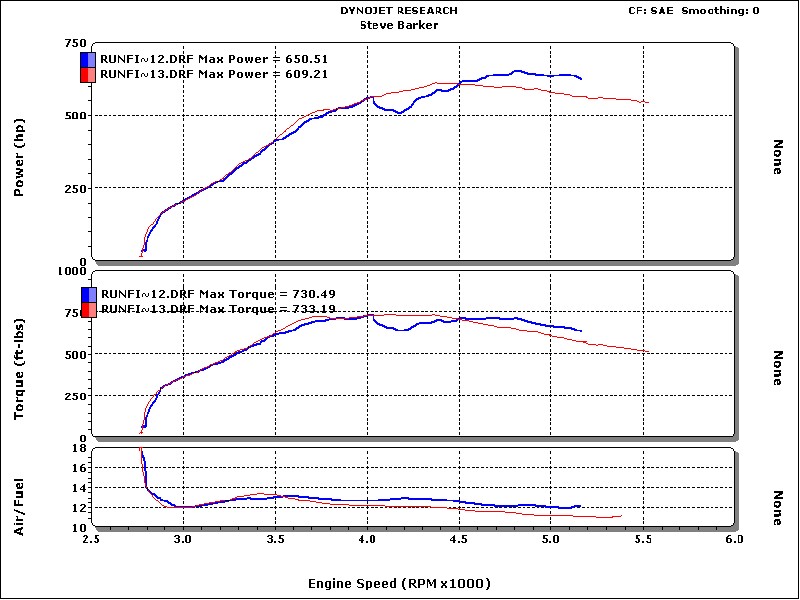Ok guys, I finally got my dyno sheets uploaded after the recent exhaust work I had done in Nov. ( the sheets blew out the window @ 90mph

)
Anyway you can see how much of a difference the large exhaust makes on a turbo car. The first sheet is my baseline dyno of which was a Callaway upgraded Wonderbar, no cats, AFPR and boost set a ~12.3lbs or 55" hg. Again the intercoolers get blazing hot after 2 runs.
The next dyno sheet is my current set up with everything the same add a 2 3/4" Power Effects exhaust system. As you can see the boost comes on A LOT faster with the larger exhaust....which explains the fart cans on the import turbo cars. Uncorrected numbers were 450+rwhp/600rwtq on a 70 degree day. I think these are more than accurate of what the car would do moving down the road with air traveling over the intercoolers.
The last sheet is a comparision of boost set at 10lbs or 50"hg compared to ~12.3-5lbs or 55-56"hg. If I close my PE mufflers down the motor feels really choked and I only get around 50-51"hg.
The next step is to do an Extrude Honed Accel TPI base and AZspeed/TPIS runners.










